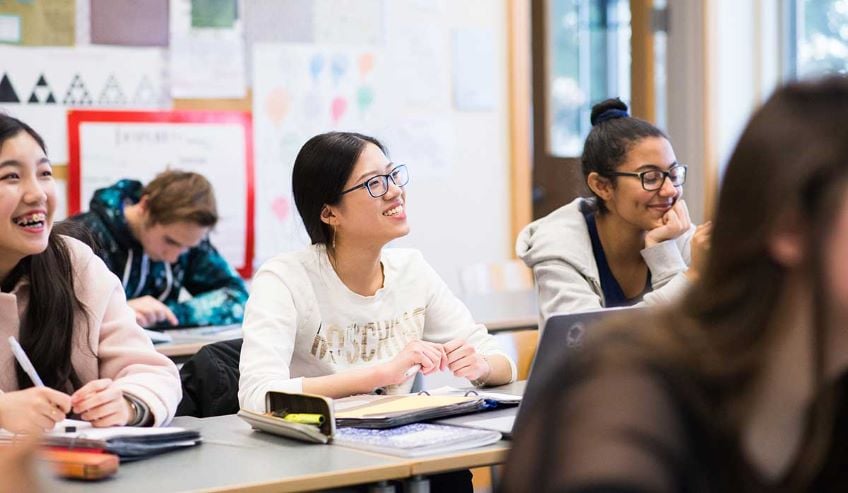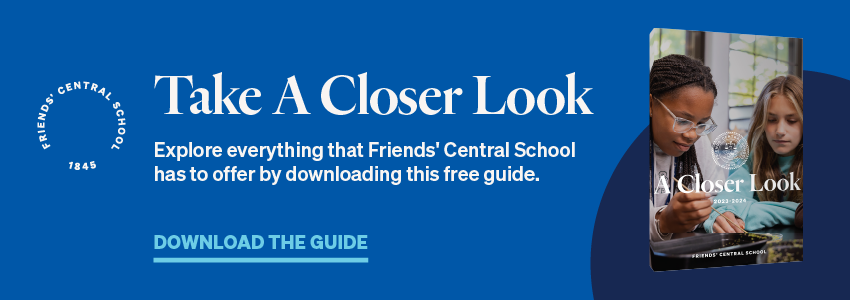
Last year was our first experience with returning to school during a pandemic. With COVID-19 still a part of our lives today as we head into August, some families may be wondering how they can support their child to ensure this school year starts off better than last year’s.
Free Downloadable Guide: Take a Closer Look at Friends' Central School
Friends’ Central empathizes with those parents whose children will be going back to school this fall. That is why we have compiled the following resources which may help keep kids on track and ease the transition back to the classroom and prevent summer learning loss.
Resources to Prepare for Back-to-School
We divided the following resources into three categories, each one addressing a different point in the back-to-school process.
1. Easing the Transition
The return to school may look different depending on your child’s grade, but a few practices are universal. Talking to your child’s school will help you stay informed of school policies, and it is your chance to ask teachers and administrators any questions. Many teachers have preferable contact methods, so now is the time to also set up those communication channels.
In addition to putting your mind at ease, establishing routines now will also ease a child’s transition back to the classroom. One such routine is a healthy sleeping schedule. For elementary-age kids, that means getting 10 to 12 hours of sleep each night, while for teens it is 8½ to 9½ hours.
Other practices could be creating a quiet work space that could be used to do schoolwork. If your child is entering middle school or high school for the first time, this is especially important because it will help them handle the increased workload.
2. Back-to-School During COVID
While a lot is different, the return to school has not changed entirely. For example, it is still important to communicate with your child about any fears they may have about the upcoming school year. Some of these concerns may be Covid-related, and some may not. For instance, if your child is entering middle school, they may be unsure about having different teachers for different subjects. Talking with your child about these concerns shows you care about their physical health and their mental well-being.
We should all want schools to remain open because that is how children learn best. However, some families, such as those whose children have special needs, need school to be open because that is where they receive vital support. Consequently, everyone should take the recommended steps to help keep schools open. That way, every child can receive the support they need.
3. Summer Learning Resources
More than anything, COVID-19 affected our ability to interact with others. Children still need to develop socially, and you can still help them in this regard while also maintaining healthy distancing habits.
Since summer is not over yet, families can still take advantage of the time by participating in some outdoor recreational and educational activities. As long as the weather cooperates, one place to start could be nature-based activities. Gardening, bird watching, or hiking are all opportunities for children to enjoy the fresh air and build an innate curiosity that will serve them well in the classroom.
To build on those natural interests, parents can also use this time to encourage their children to read about the things they enjoy. Show you value reading by modeling the activity and keeping the practice fun. The goal is to make reading fun. That way, they continue doing it even after the school year begins.
Looking Ahead
Some individuals face a difficult choice in choosing whether or not to send their child back to in-person learning. If you are struggling with this decision, the CDC has released this tool to help families make the right choice.
As the 2021-2022 school year approaches and you finalize your decision, our faculty will continue doing what is best to support you and your child.


